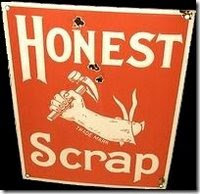Let me be my own devil's advocate for a minute:
Trade-off schmade-off! Who the hell says I can't or don't want to be happy all the time?!?!
This is America, dammit! I can be happy all the time if I want to!!!
I guess I would have to agree that perpetual happiness is at least a theorhetical possibility. However, I would still argue that, in the long run, it is neither practical nor desirable. Constant happiness is a practical impossibility for several reasons:
1. It presumes that you can control your circumstances and/or expectations to a degree that is improbable. In this mythical happiness-world, will no one close to you ever die? Or get sick? Will you never have an accident? Will you never be in pain? Will you always be in a position to do the things that you want to do - rather than compromise with what others want? Or will you just keep your expectations so low that disappointment is never risked?
2. It presumes that being happy all the time is good for you. But didn't you ever learn a valuable lesson as the result of a hardship? Could you have learned that lesson any other way than going through that difficulty? Aren't some of the qualities that we value most in others - dependability, strength, composure, maturity - aren't they developed in large part when we are forced to deal with adversity, to overcome an unanticipated challenge? Better yet - turn the question around and answer this: Is it your experience that people who always seem to get everything they want, who always seem get their way, who never seem to compromise or have to do without - are they people of good character? Do they possess qualities that you wish to emulate, that make them good role models? Are these people you would like to spend a lot of time with?
If your answers to these questions are similar to mine, then hopefully I've been able to substantiate my assertion from yesterday's post that happiness, while desirable, has its limitations. So, in our journey towards the MOL*, we've covered a couple of important trade-offs that we'll need to keep in mind.
- Increased risk/reward of high expectations vs. lower risk/reward of minimized expectations
- The potential benefit of building character through dealing with adversity vs. the destructive impact of constant, unrelenting hardships
Some have said that whatever doesn't kill you makes you stronger - but I don't necessarily believe that. Some difficult experiences will scar us in a way that no "character building" justification makes sense. Is there some way to rationalize how a young woman being raped can serve to make her a stronger person in the long run? Should I get hooked on heroin so that I can (hopefully) prove that my will is stronger than the chemical's hold on me? Should I put myself and those around me into intentionally stressful situations to test whether I can retain my composure in those circumstances?
It seems to me that no one needs to seek out trouble to prove their worth - each day has trouble enough of its own. But, hopefully, we can each find ways to minimize the difficulties we encounter. And, perhaps, be wise enough to make the kind of decisions that will increase the opportunities for happiness - both for ourselves and those around us.
KEEP IN MIND: There is no substitute for happiness. If you are unhappy, the fact that dealing with hardships and adversity have improved your character may be of little comfort. You'll be strong and dependable and mature and...unhappy. On the other hand, if your desire to always be happy leads you to shy away from tough decisions, to avoid sacrifice - even when your conscience tells you otherwise, to sever relationships - rather than do what the other person wants or needs...well, I don't think that whatever happiness you find will be long-lived. Or satisfying in the long run.
Before I close this chapter of our journey together, let me do what I told my wife (the Middle-Aged Woman) I would do.
Some things that make Jim Styro happy:
- Causing someone to smile or laugh
- Singing
- Finishing something difficult
- Reading scripture
- Enjoying a good piece of art - a book, a film, or an image that is uplifiting
- Big TVs
Thanks for listening to this latest rant. I'm not sure how far we have to go to the MOL - but I think we're headed in the right direction.
Take care.
* Meaning of life






6 comments:
Agreed that adversity and unhappiness cannot be avoided, though occasionally one can delay certain unpleasantries (such as court dates, audits, or root canals). Besides, it is our awareness of past pain that we can better appreciate the happiness that does come our way.
I once viewed the implosion of my business in the late 1990s as horrifying, since my entire life was wrapped up in being a business owner. Yet despite the humbling experience of losing nearly every nickel to my name, and spending a year and a half drinking like an oxygen-deprived whale, I now know that this was among the best things that ever happened to me. It gave me a chance to go back to college, reinvent myself, and get into work I actually love.
I also think that there is an inverse relationship between IQ and the quantity (but not quality) of happiness a person experiences. A blithering idiot with an IQ of 42 could be quite happy playing with a ball of red yarn for four straight hours, at least until some BIG MEANIE comes along and takes the yarn away.
(apologies to any blithering idiots reading this comment)
That being said, a blithering idiot could still appreciate van Gogh's The Red Vineyard as a PRETTY PICTURE while clapping his hands and being shushed by his caretaker. Would his happiness be of lesser quality than some would-be art geek like me, who stares at the broad brush strokes and trippy colors while pondering the latent revolutionary politics that might be lurking in van Gogh's depiction of laboring peasants?
Hmmm... I have to think about this some more.
Okay, I think my previous comment would fit here too.
What makes me happy is:
watching my husband and daughter laugh and bond
being a part of it
a good coffee
being busy (but not too busy)
those moments of zen at the end of the day when I'm just about to fall asleep and my thoughts finally take a rest.
:-)
Not that I live my life by what I see on office walls, or even remember things that I see on office walls for very long, but I saw a good one today.
Success is not a destination but a journey.
I'm not even successful by my own low-bar definition of feeding, clothing and sheltering my family. It's pretty much a struggle, but the struggle has been satisfying.
About seven years ago I started looking at everything like a sledding hill: just take it for the best ride you can get and climb again. (When you feel like Sisyphus take heart, you're in for a good coast shortly.)
Mikey: Dude, thanks for the thoughtful comments. After all that, I hope you've got enough time and energy left for your own site. I will only say that the relationship between intellect and happiness is something I intend to cover further in a future MOL post.
SK: I like your "happiness list". The only thing we don't share in common is the coffee thing. I've never drank a whole cup in my life. Other IT professionals are very suspicious of me as a result.
Mister: Amen, brother! If you're not enjoying the ride, you're missing the point. And I know it can be hard when you're struggling - but remember that your family will be better served in the long run by emotional and spiritual wealth, than any material things you can give them.
Great post Jim. I totally agree with you about the unhappy times serving to shape us going forward. I always thought of it this way, it was the trouble I didn't seek (illness, loss of job, etc) that I was supposed to learn from. Any unhappiness I created for myself, well I just deserved to be unhappy then for being stupid.
Enjoying the MOL series!
S&M: Thanks so much for your encouraging words. The more I think and write about these "big questions" of life, the more I feel that knowing the right thing to do at a given time or circumstance is not that difficult. What can be frustrating is not having a clear sense of where things are headed at the "30,000 foot view". But I am pursuaded that - if we make good decisions in small matters, we give ourselves the opportunity to have the big things turn out OK too. I figure the proverbial glass is (at least) half full - maybe even three-quarters.
Post a Comment